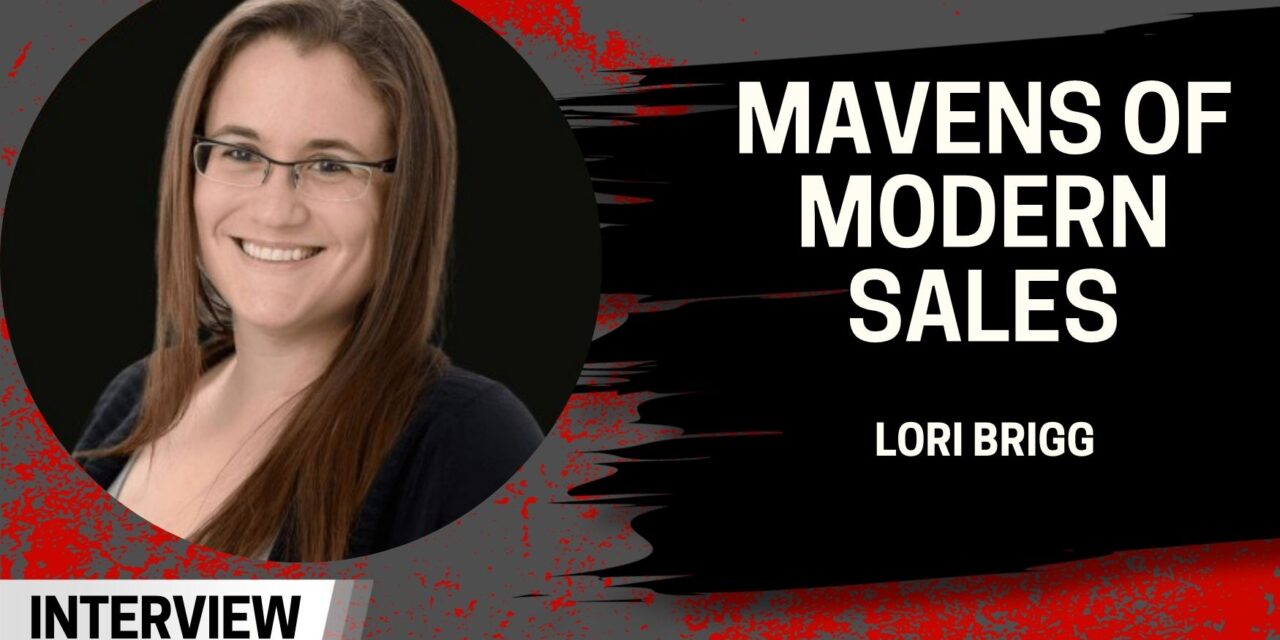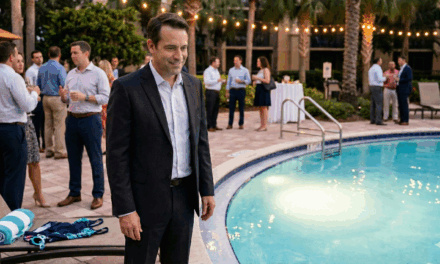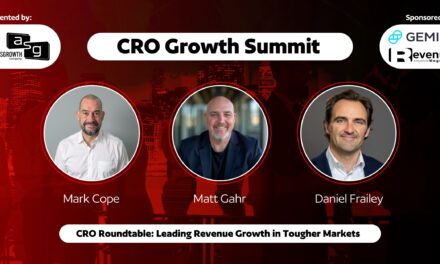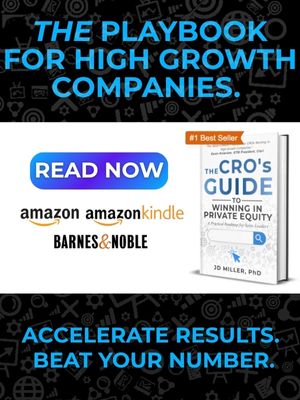
Mavens of Modern Sales – Lori Brigg

Welcome to Mavens of Modern Sales, where we take a deep dive with the sales leaders pulling sales teams in the 21st century to get their insights on leadership, strategy, industry trends, and more.
This week we talked to Lori Brigg, Chief Revenue Officer at Raven.
What metrics or KPIs do you consider most important for gauging the health of the sales organization and how do you ensure teams stay focused on them?
Before I answer this, it’s important to understand what I consider to be a sales organization. The typical definition of sales, obviously, is bringing net new business. However, I also consider partner managers and customer success as part of the sales organization. Some KPIs are the same and some are unique to the specific function. My personal metric is ARR Growth – it is all encompassing, it blends all relevant metrics (net new business, expansion, contraction and churn) into a single number. That said, to find where to optimize or find potential failures, one must look into every metric on its own.
When diving into the organization itself I look at a blend of performance and process efficiency. Mentioning below KPIs that are relevant across all sales functions:
- Revenue Metrics:
- Quota Attainment
- Deal Win Rate
- Efficiency Metrics:
- Sales Cycle Length
- Conversion Metrics: (MQL to SQL, SQL to Won): relevant for all sales functions. For cross-sell for example, I will consider a customer that meets the criteria as MQL. If they are willing to start an evaluation process, it will be considered SQL. This allows me to look at up-sell, cross-sell and expansion in a similar way I look at net-new business.
- Customer Acquisition Cost (CAC). I measure this but don’t really make decisions upon this until about $8 million in ARR.
- Pipeline Metrics
- Pipeline Coverage: Ratio of pipeline value to quota, ensuring there’s enough activity to meet targets. Relevant across all sales functions.
- Team Productivity Metrics
- Activity Levels: Number of calls, meetings, or demos conducted by sales reps.
What’s one thing you think salespeople get wrong about selling to a CRO, and how can they fix it?
Salespeople often misunderstand what it takes to effectively sell to a CRO, but this issue is not exclusive to CROs. The broader challenge lies in the inability of many sellers to engage in genuine, insightful conversations with their prospects to truly understand their unique needs, challenges, and objectives.
This problem often stems from overly standardized sales processes imposed by organizations. These rigid frameworks are designed to streamline and scale selling but unintentionally discourage adaptability and critical thinking. As a result, sellers can lose confidence in their ability to navigate a sale naturally, focusing more on checking boxes and adhering to a predefined mold than on building meaningful, solution-oriented connections.
To fix this, salespeople should:
- Prioritize Discovery Over Pitching
- View the sales framework as a guide, not a strict rulebook
- Invest in Training for Adaptive Selling Skills. I highly recommend “Beat the bots” by Anita Nielsen.
You talked about how personalized emails often feel “creepy”, how can sellers strike the right balance between personalization and relevance without overstepping?
Striking the right balance between personalization and relevance is simpler than it seems: focus on personalization that directly connects to the solution you’re selling or the value you can provide. If the detail you’re referencing highlights genuine research and is relevant to the prospect’s business or problem, it’s a win. For example, if the prospect’s company logo appeared on a competitor’s website that recently went out of service, that’s highly relevant and demonstrates you’ve done your homework.
On the other hand, referencing personal details, like spotting a flag in the background of their LinkedIn profile or mentioning their favorite sports team, might come off as intrusive and irrelevant. These details don’t align with the reason you’re reaching out and can feel “creepy” rather than thoughtful.
In your post about the first pancake, you highlighted how momentum is more important than perfection. How do you encourage your teams to embrace the mistakes to continuously refine their strategies?
Encouraging teams to embrace mistakes as part of the journey starts with intentional planning and fostering a culture that values progress over perfection. When planning, I remind my team of two critical principles: “You miss 100% of the shots you don’t take” and “It’s better to try, miss, and learn than to stall while overthinking.”
I encourage the team to focus on taking calculated risks, emphasizing speed and adaptability over creating a flawless but slow solution. We discuss how each step forward—whether it leads to success or a learning moment—builds momentum, which is crucial for continuous refinement and improvement.
By framing mistakes as opportunities for growth and ensuring that every action ties back to a clear objective, teams can confidently take action, adjust strategies as they learn, and ultimately move faster toward achieving their goals.
You recently pointed out the irony that email automation tools have killed cold email outreach – what advice would you give to teams looking for alternatives?
LinkedIn outreach is by far the top alternative to email automation for outbound efforts. What I like about linkedin is that prospects can choose to ignore connection requests and it’s not as intrusive as a cold email that floods your work inbox.
Cold calls, while not entirely dead, as some have claimed, have become a more specialized skill. They now require top-tier talent—individuals who excel in building rapport quickly and adapting dynamically to conversations. It’s surprising that cold calling is still often seen as an entry-level task, given the level of expertise and finesse it demands in today’s market.
When it comes to building or scaling a sales team, what’s your philosophy on hiring? Do you look for certain traits or focus more on skills?
My hiring philosophy is rooted in the principle of “Hungry, Humble, Smart,” a concept introduced to me by a dear colleague and friend, Jamie Lee. It perfectly complements my intuitive approach to building teams. In today’s fast-evolving tech landscape, hiring based solely on past roles or specific functions often misses the mark. Instead, I prioritize traits and capabilities that align with adaptability and long-term growth.
During interviews, I focus on how candidates interact, the quality of their questions, and the thoughtfulness of their answers. I observe what they emphasize in their responses, which often reveals their priorities and mindset. While measurable aspects like experience and achievements matter, my primary goal is to find driven, intelligent individuals who possess the humility and hunger to grow, contribute, and thrive within the team.
Ultimately, I believe that hiring “good people” with the right attitude and potential creates a strong foundation for scaling a successful and dynamic sales team.
Lori Brigg is the Chief Revenue Officer at Raven, a revolutionary startup in the runtime application protection space. In this role, Lori spearheads efforts to drive Raven’s revenue growth and Raven’s market presence.
With over 18 years of experience in disruptive technology startups, Lori has a proven track record of guiding companies from product-market fit to their first million in revenue and scaling them to tens of millions in ARR. Her expertise spans crafting go-to-market strategies, building high-performing revenue teams, and leading organizations through hyper-growth phases.
Lori holds a B.A. in Psychology and Economics, as well as an MBA in Management of Technology and Innovation, both from Tel Aviv University. Based in Sunnyvale, California, she enjoys karaoke and is passionate about helping women in tech. She actively mentors individuals at all career stages, from young professionals seeking guidance to seasoned managers planning their next move.


































